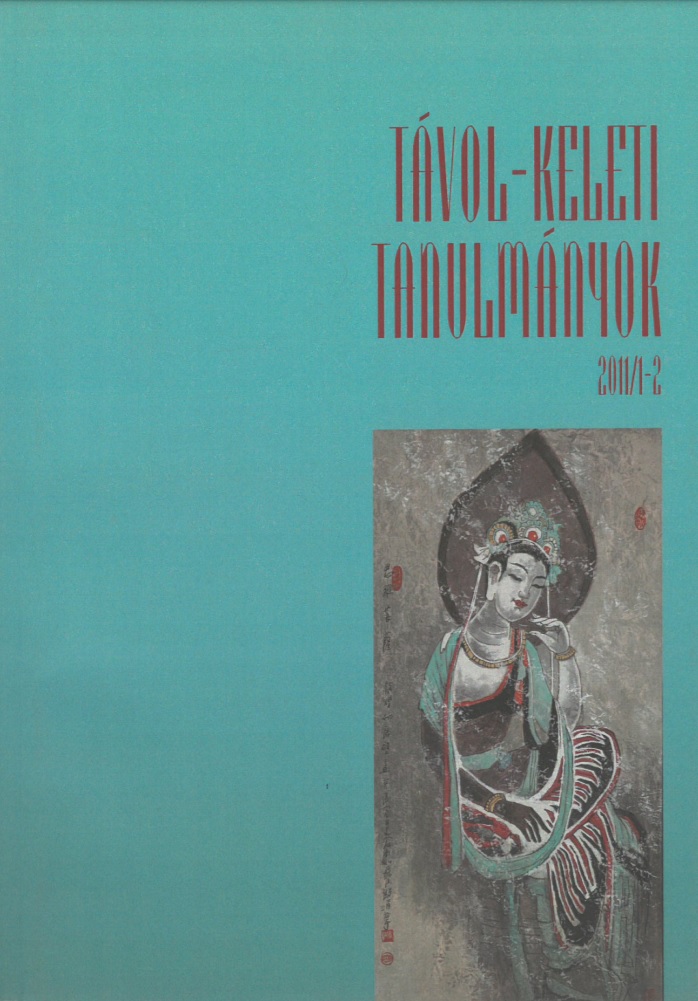Published 2013-09-03
How to Cite
Copyright (c) 2013 the author(s)

This work is licensed under a Creative Commons Attribution-NonCommercial 4.0 International License.
Abstract
Wang Wei’s opus is one of the most complex poetical works of the early Tang period. Studies and translations recently published generally focus on the Taoist-Buddhist aspects reflected in his poems. These studies aim to point out connections between Taoist-Buddhist practices and art-related creation. This paper draws attention to the linguistic expressions of Wang Wei’s poems that seem to be influenced by Taoist-Buddhist practices and traditions; it also translates and attempts to explain some couplets of his poems that have never been published in Hungarian before.
